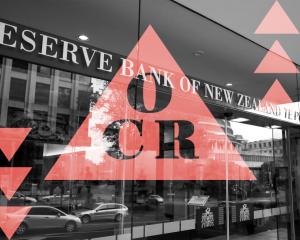Fear is gripping the world's financial markets this week with stock exchanges and currencies spiralling to new lows as the predicament of debt-laden Greece and Italy intensifies.
The ability of the pair to implement harsh austerity measures, outlined by lenders the European Union and International Monetary Fund, prompted an investor retreat which saw the major global markets plunge.
Protests and riots have abounded in Greece and Portugal in recent weeks in protest against job losses, unemployment, state asset sales and the respective governments' handling of their economies.
The euro fell broadly on Monday, hitting a two-month low against the US dollar and a record trough against the Swiss franc, with more losses expected on fears the euro zone sovereign debt crisis is spreading.
The New Zealand dollar reached a five-week high against its Australian counterpart and a 15-week high against the euro.
US stocks fell after warnings about the finances of several European countries stoked fears the region's debt crisis was worsening; the Dow Jones industrial average closing down 1.05%, the Standard & Poor's 500 down 1.19% and the Nasdaq Composite down 1.58%.
Similarly European, United Kingdom and Irish stocks fell, followed by Asian bourses and the Australian ASX 200, the latter down 1.8% at the expense of materials and financial sector stocks.
Oil prices fell on Monday, briefly striking $US96.37 a barrel, as investors got out of commodities and into safer havens, and conversely gold went to its highest level in nearly two weeks, to $US1517.50 an ounce.
Forsyth Barr broker Suzanne Kinnaird said the European shares hit the five-week closing low after a cut in credit ratings for Greece and a negative outlook for Italy were announced in recent days, which raised the concerns about the euro-zone's debt crisis.
Analysts are concerned Greece may have to restructure its 110 billion debt in order to deliver payments and avoid defaulting on its loans.
Craigs Investment Partners broker Peter McIntyre noted Greece wanted to create a "sovereign wealth fund", of real estate and state-owned assets in order to raise an additional 6 billion to meet deficit reduction targets.
This could mean selling assets such as the post company, water utility companies and major ports.
"Greece is under enormous pressure to demonstrate that it will not need to undergo [debt] restructuring," he said.
Financial markets piled pressure on other peripheral euro-zone countries on Monday because of the heightened risks in Spain and Greece and fresh concerns over Italy.
A weekend wipe-out of Spain's ruling Socialists in regional and municipal elections raised fears of potential clashes over deficit curbs between central and local government as Madrid fights to avoid having to seek a bailout like those of Greece, Ireland and Portugal.












